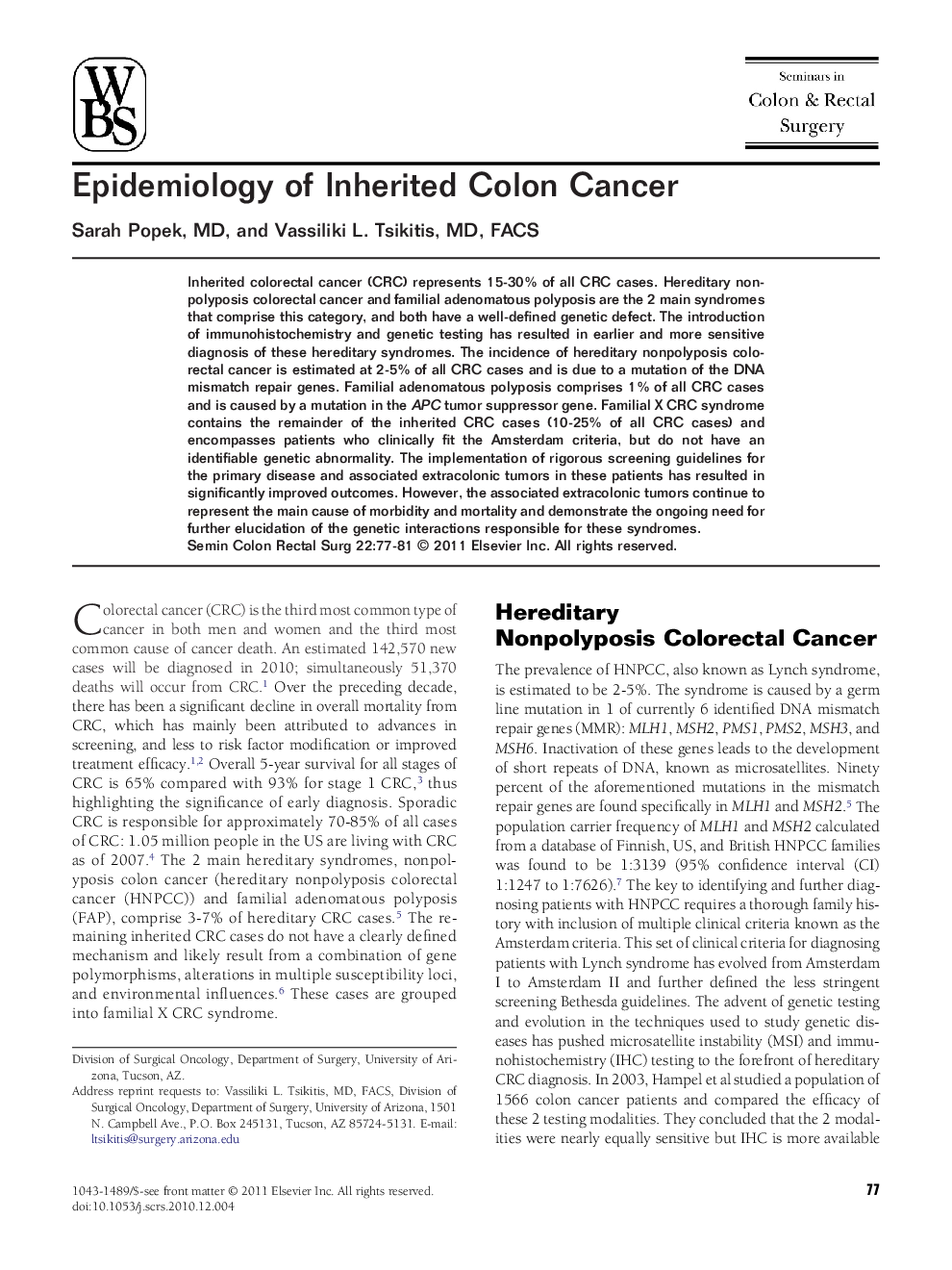| Article ID | Journal | Published Year | Pages | File Type |
|---|---|---|---|---|
| 3319479 | Seminars in Colon and Rectal Surgery | 2011 | 5 Pages |
Abstract
Inherited colorectal cancer (CRC) represents 15-30% of all CRC cases. Hereditary nonpolyposis colorectal cancer and familial adenomatous polyposis are the 2 main syndromes that comprise this category, and both have a well-defined genetic defect. The introduction of immunohistochemistry and genetic testing has resulted in earlier and more sensitive diagnosis of these hereditary syndromes. The incidence of hereditary nonpolyposis colorectal cancer is estimated at 2-5% of all CRC cases and is due to a mutation of the DNA mismatch repair genes. Familial adenomatous polyposis comprises 1% of all CRC cases and is caused by a mutation in the APC tumor suppressor gene. Familial X CRC syndrome contains the remainder of the inherited CRC cases (10-25% of all CRC cases) and encompasses patients who clinically fit the Amsterdam criteria, but do not have an identifiable genetic abnormality. The implementation of rigorous screening guidelines for the primary disease and associated extracolonic tumors in these patients has resulted in significantly improved outcomes. However, the associated extracolonic tumors continue to represent the main cause of morbidity and mortality and demonstrate the ongoing need for further elucidation of the genetic interactions responsible for these syndromes.
Related Topics
Health Sciences
Medicine and Dentistry
Gastroenterology
Authors
Sarah MD, Vassiliki L. MD, FACS,
